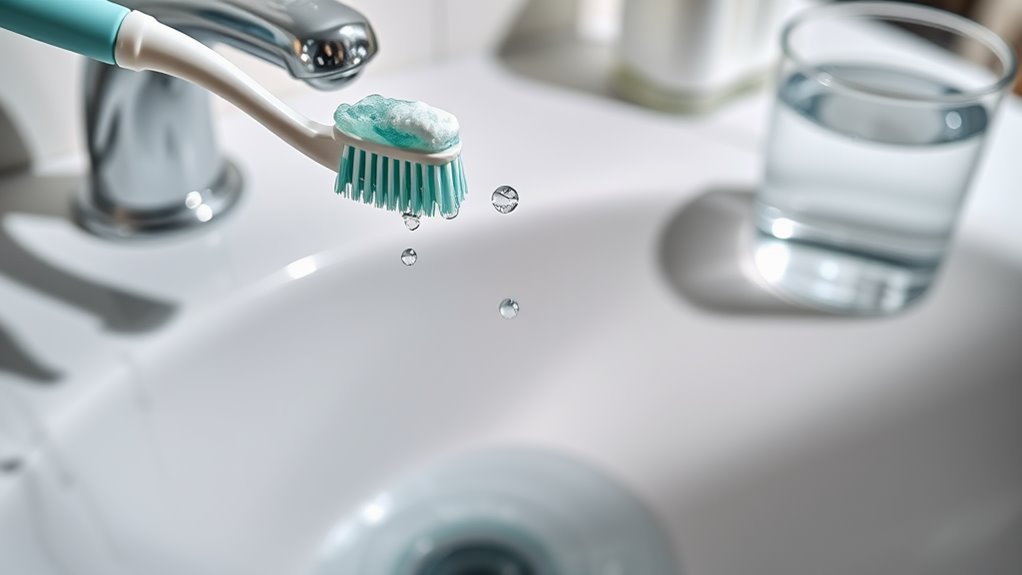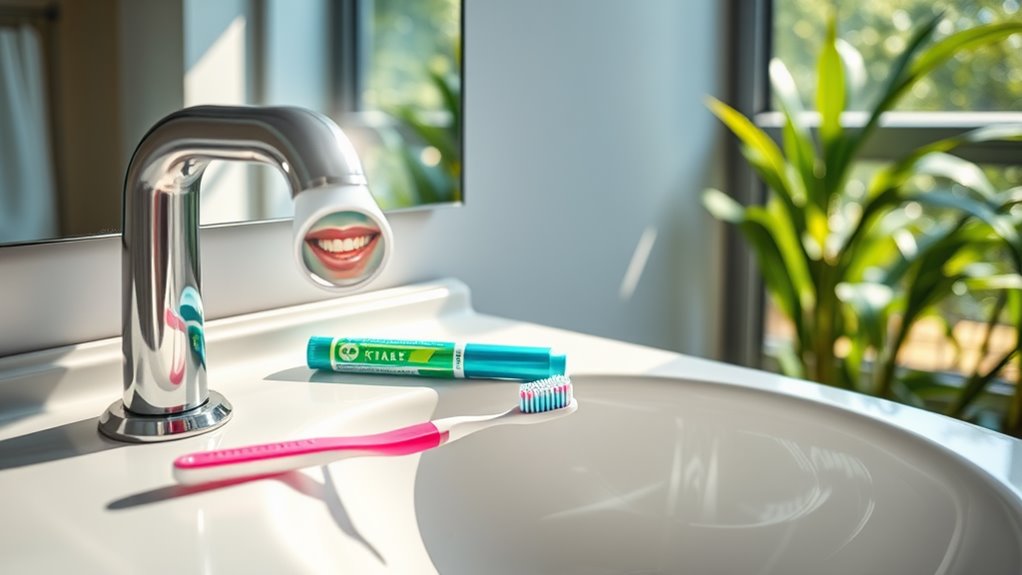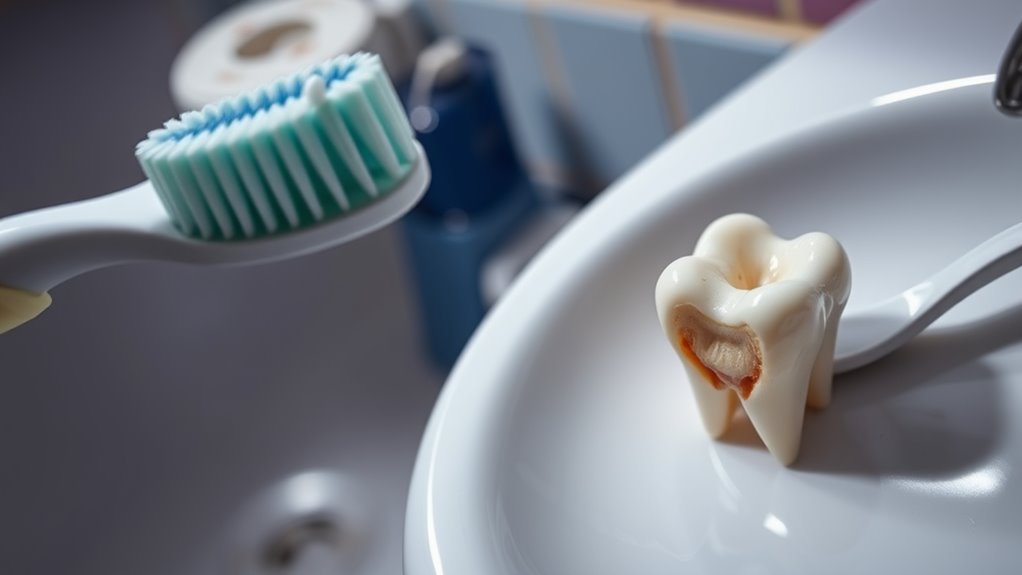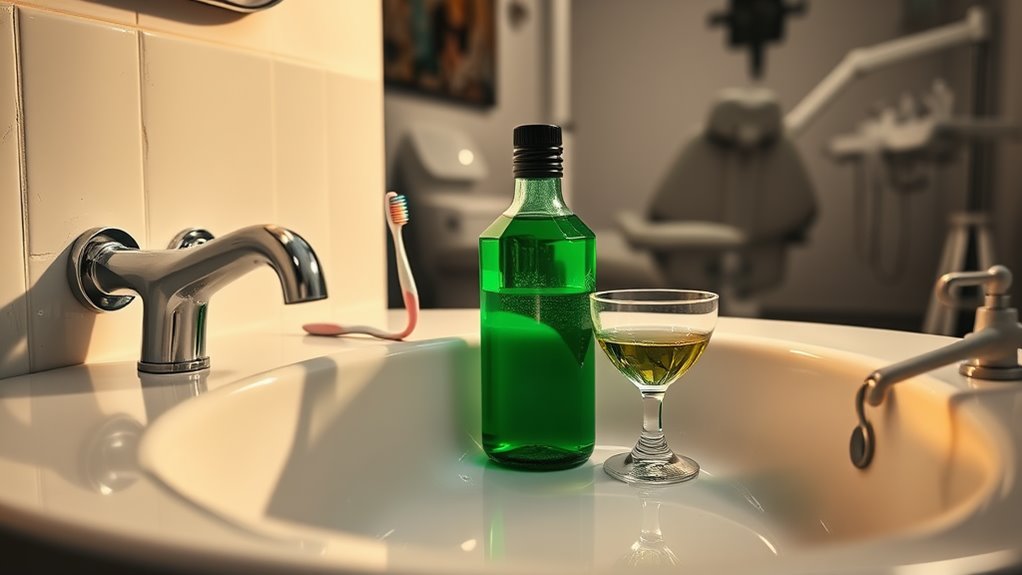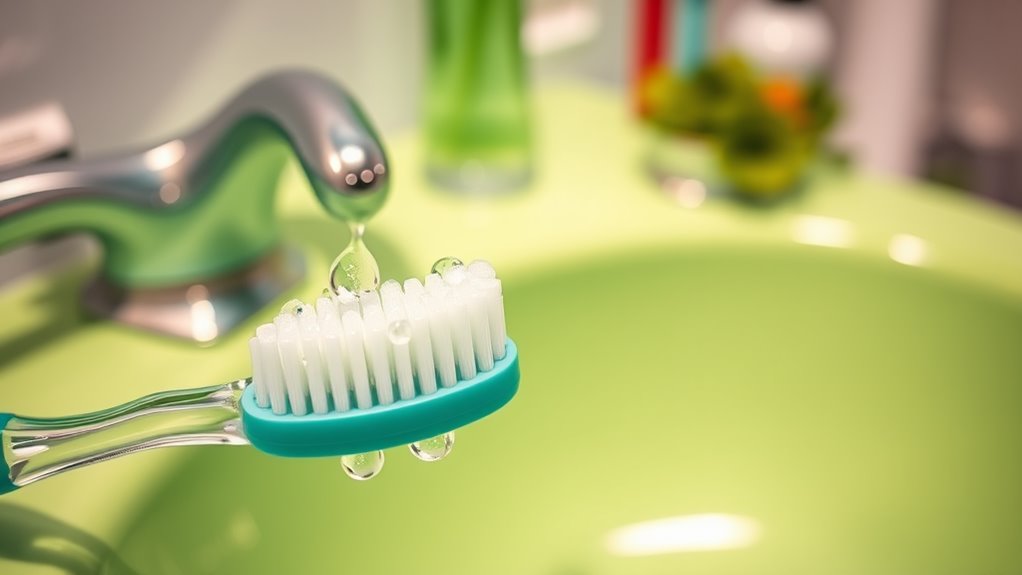Should You Rinse After Brushing. The Truth May Surprise You
Key Takeaways
- Rinsing after brushing can wash away beneficial fluoride, reducing its effectiveness in preventing cavities.
- Spitting out excess toothpaste without rinsing allows fluoride to remain in contact with teeth longer.
- Waiting 30 minutes before eating or drinking post-brushing enhances the benefits of fluoride.
- Incorporating practices like using a tongue scraper can improve oral hygiene without rinsing.
- Regular dental check-ups and mindful eating habits further support optimal dental health.
The Purpose of Brushing Your Teeth
Brushing your teeth plays an essential role in maintaining oral health. It removes plaque, food particles, and bacteria, preventing cavities and gum disease.
A post-brushing rinse can help wash away any remaining debris, enhancing your mouth’s cleanliness. However, it’s vital to use a mouthwash that complements your brushing rather than negating its benefits, as over-rinsing can dilute the effects of fluoride. Foods rich in antioxidants can also support your dental health by neutralizing harmful acids.
Understanding Fluoride and Its Benefits
Fluoride is a powerful ally in your quest for strong, healthy teeth. This mineral helps remineralize enamel, making it more resistant to decay.
By incorporating fluoride toothpaste into your routine, you’re actively reducing the risk of cavities and promoting oral health.
Fluoride also strengthens developing teeth in children, providing them with a lifetime of benefits.
Embrace fluoride for better dental experiences! Additionally, it’s important to note that regulatory agencies like the CDC endorse fluoride’s safety when properly used.
The Effects of Rinsing After Brushing
While some people instinctively rinse their mouths after brushing, doing so can actually diminish the benefits of fluoride. Rinsing washes away the concentrated fluoride left on your teeth from toothpaste, reducing its effectiveness. This can lead to a higher risk of cavities and weaker enamel. To maximize fluoride’s protective effects, consider avoiding rinsing immediately after brushing for better dental health outcomes. Additionally, ensuring adequate Vitamin D levels is essential for maintaining strong teeth and enhancing fluoride’s protective qualities.
Alternative Post-Brushing Practices
To enhance your dental care routine, consider alternative practices after brushing. Instead of rinsing, you might simply spit out excess toothpaste. You could also wait 30 minutes before eating or drinking to allow fluoride to strengthen your enamel. Additionally, using a tongue scraper can help remove bacteria buildup, improving your overall oral hygiene without compromising the benefits of your toothpaste. Incorporating a healthy breakfast into your morning routine can further support your enamel and gums.
Recommendations for Optimal Oral Hygiene
Maintaining ideal oral hygiene requires more than just proper brushing techniques; it involves an all-encompassing approach to your dental care routine.
Brush twice daily with fluoride toothpaste, floss regularly, and consider using mouthwash for added protection. Additionally, schedule regular dental check-ups for professional cleanings and advice. Stay mindful of your diet, as sugary snacks can contribute to tooth decay. Incorporating scientifically proven benefits in your dental care can enhance your routine and overall oral health.
